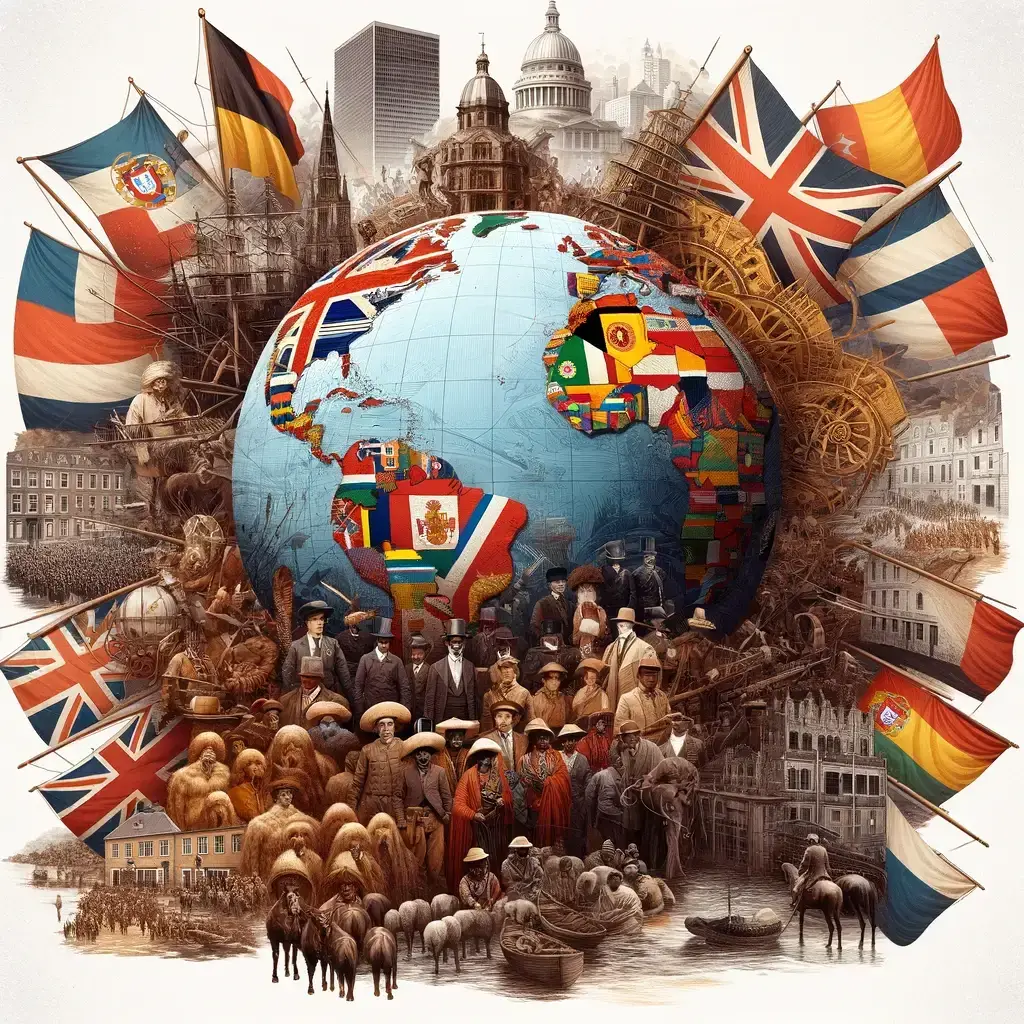Colonialism
What is Colonialism?
Colonialism is the practice of one country establishing settlements or colonies in another region, often to exploit resources, spread culture, and expand territory. Colonizing powers exert control over local populations, economies, and governments, as seen in the European colonization of the Americas, Africa, and Asia.
The Age of Colonialism
Colonialism became a major force in world history during the 1400s to the 1900s. European countries like Spain, Britain, and Portugal sent explorers to claim lands in the Americas, Africa, and Asia. They established colonies to extract resources like gold, spices, and cotton. Colonizers often imposed their culture and government on native populations. While colonialism created wealth for European empires, it caused hardship and loss of freedom for many indigenous peoples.
Reasons Behind Colonization
Countries pursued colonization for several reasons. They wanted access to valuable resources to fuel their industries. Colonies also provided new markets for goods and a chance to spread their culture and religion. Some leaders believed in the idea of “civilizing” the people they ruled. These motivations led to a global race for control over land and wealth.
The Impact on Native Societies
Colonialism changed the lives of indigenous peoples. Traditional ways of life were often disrupted as colonizers took control of land and resources. Native cultures, languages, and religions were sometimes replaced or suppressed. While colonizers built infrastructure like railroads and schools, these mostly served their own interests. Many indigenous people faced harsh treatment, including forced labor and loss of independence.
Trade and Exploitation
Colonial economies were built on exploiting local resources and labor. Colonies supplied raw materials like sugar, tobacco, and rubber, which were shipped to Europe. In return, colonized regions were forced to buy manufactured goods from the colonizers. This trade system often left local economies underdeveloped. Wealth flowed to the colonizing countries, creating a cycle of inequality.
The Scramble for Africa
In the late 1800s, European nations raced to colonize Africa, a period known as the “Scramble for Africa.” At the Berlin Conference of 1884, European leaders divided the continent without consulting African rulers. They created borders that ignored tribal and cultural divisions, leading to conflicts that still affect Africa today. The scramble resulted in decades of exploitation, but it also inspired movements for independence.
Life in a Colony
Life under colonial rule depended on your role in society. Colonizers lived in wealth and controlled politics, while native populations often worked as laborers. Farmers grew crops for export instead of feeding their own communities. Education and healthcare were usually limited to the colonizer’s needs. Despite the hardships, some communities adapted and found ways to preserve their traditions.
Resistance to Colonial Rule
Colonialism faced resistance from the people it affected. Indigenous leaders and communities fought back through protests, revolts, and wars. For example, in India, figures like Mahatma Gandhi used nonviolent resistance to challenge British rule. In Africa, leaders like Shaka Zulu defended their lands against European invaders. These acts of resistance showed the strength of colonized people and their desire for freedom.
Cultural Exchange and Conflict
Colonialism led to both cultural exchange and conflict. Colonizers introduced new languages, religions, and technologies to the regions they controlled. In return, they adopted some local traditions, foods, and art. However, these exchanges often came at the cost of native cultures, which were sometimes suppressed or replaced. This mix of influence shaped the identities of many modern nations.
The Fall of Colonial Empires
Colonialism began to decline after World War II, as colonies pushed for independence. Movements for self-rule grew stronger in Asia, Africa, and the Caribbean. International organizations like the United Nations supported decolonization efforts. Countries like India, Ghana, and Jamaica gained independence through protests, negotiations, and revolutions. This period marked the end of colonial empires and the start of new nations.
